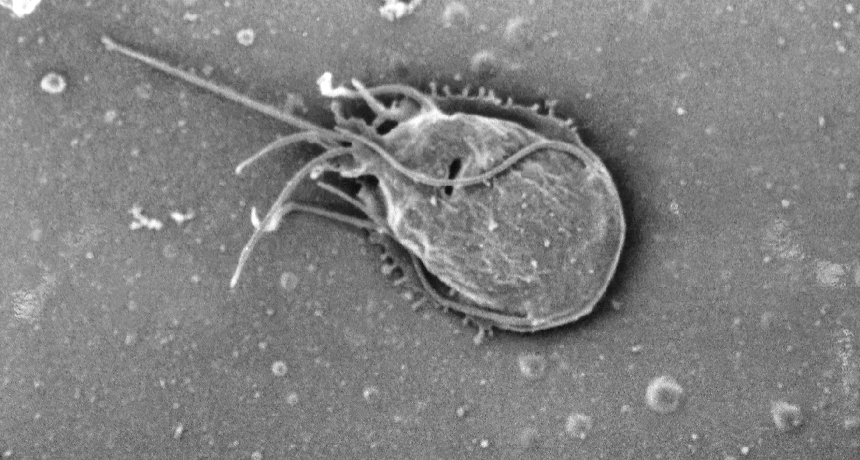We might feel bloated after eating pizza or gassy after eating tacos and 2 scientist may have finally figured out why. Recent research has revealed that what we’re feeling could be a sign of a much more serious digestive disorder caused by parasites that can affect our brains and the way we think. It can even be deadly if left unattended.
According to current estimates by NYU’s Langone Medical Center, 74% of Americans currently suffer from this disorder and more than half of them don’t even know it.
In a study published in April 2016 in the magazine Clinical & Translational Immunology, scientists examined the skyrocketing rates of inflammatory diseases like Inflammatory Bowel Disease (IBD), asthma, obesity, and diabetes.
As part of their research, the scientists examined the intestinal microbiota of patients with these diseases and noted that people with IBD have increased numbers of dangerous bacteria, such as E. Coli and B. Fragilis, in their gastrointestinal tract. This leads researchers to conclude that many of these inflammatory diseases are linked by a common source: parasites taking over the gut’s microbiome.

It’s noted that antibiotics and vaccines may play a role in disrupting the digestive system, but studies point a larger finger at diet, specifically the consumption of sugar and processed foods. This is a blow that many corporations in the food industry are reeling from, as they try to fend off lawsuits and keep the scandal covered up.
Perhaps more alarming is a study published in July 2016 in the Journal of Neurogastroenterology and Motility, which reveals a connection between this disruption of the gut’s microbiome and many psychiatric disorders like anxiety, depression, obsessive-compulsive disorder, and memory. So, these gut parasites do far more than cause digestive discomfort—they even affect the way our brains work.
Scientists in both studies agree that rebalancing the gut’s microbiome is key to combating all of these conditions.
Luckily, one scientist thinks he may have found a solution!
Alex Mayfield, Director of Cellular Research Institute and Harvard alum, may be close to solving a puzzle that has baffled even the CDC, which gives hope to the 230 million Americans affected by the epidemic.
Mayfield commented, “We’ve conducted three sets of clinical trials and are in the final steps of analyzing the data. So far, the results look promising.”
Watch the shocking video summering their investigation and announces their solution.
Watch the shocking presentation:
Indeed, this presentation by CRI contains some shocking revelations that have caused a bit of an uproar. One viewer commented: “This is crazy! I never had any idea that I was tired and depressed because of a serious digestive disorder. Now, even my acne at the age of 43 makes sense. Best of all: now I know how to fix it!”
Alex Mayfield and CRI’s ground-breaking research has also caused some significant controversy and backlash.
As part of this report, we reached out to some of the food manufacturers responsible for the epidemic. Most refused to comment. Others insisted that their products and practices are safe and simply promised: “Mr. Mayfield will be hearing from our lawyers.”
As for Mayfield, he simply says: “Check the facts. This can’t be ignored forever. The People deserve to know the truth.”
Cellular Research Institute report contains dietary advice and education about the full extent of the epidemic, as well as a solution.

About the Author:
Alex Fair is a Health and Nutrition Enthusiast, studied Journalism at UCLA.
Lives in Anaheim, California, with a beautiful wife, two really smart sons, and a funny terrier.
Occasionally contributes to a local newspapers and blogs like WebHealthWire.com
References:
1.Shen S, Wong CH. Bugging Inflammation: Role Of The Gut Microbiota.
Clinical & Translational Immunology. 2016 Apr; 5(4): e72.
Published Online 2016 Apr 15. doi: 10.1038/cti.2016.12
PMCID: PMC4855262
https://www.ncbi.nlm.nih.gov/pmc/articles/PMC4855262/
2.Wang H, Lee IS, Braun C, Enck P. Effect Of Probiotics On
Central Nervous System Functions In Animals And Humans – A Systematic Review.
Journal of Neurogastroenterology and Motility. 2016 Jul 13. doi: 10.5056/jnm16018.
https://www.ncbi.nlm.nih.gov/pubmed/27413138






